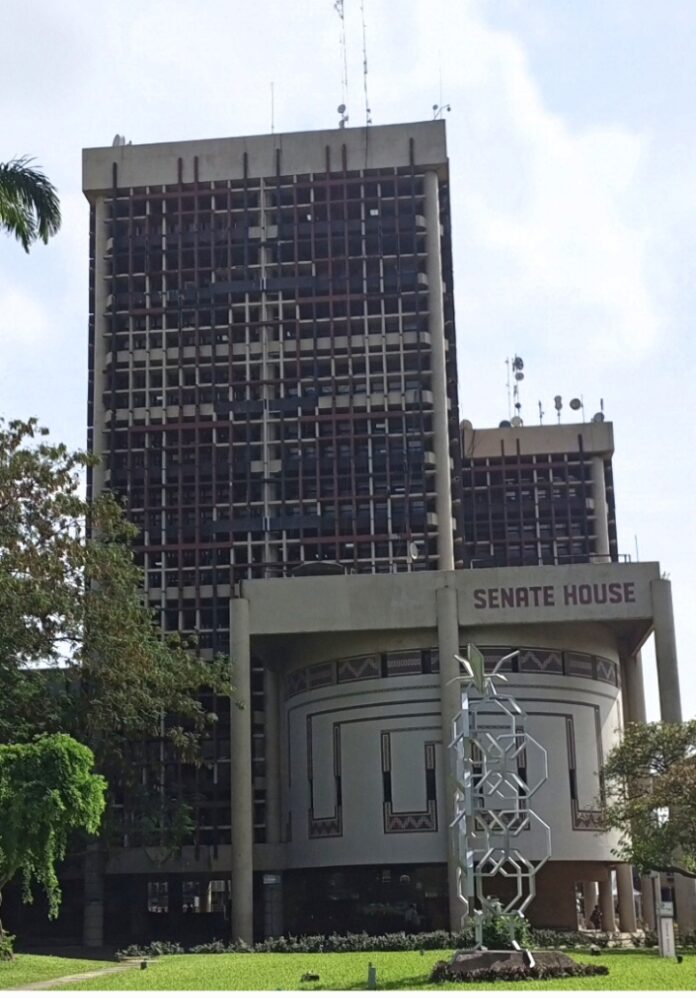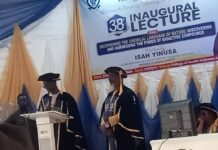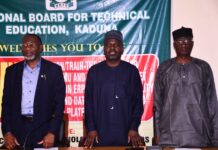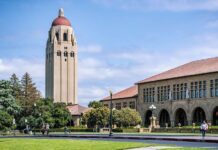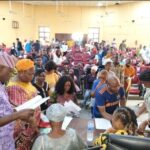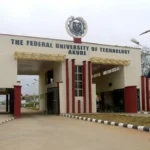The Faculty of Social Sciences, University of Lagos (UNILAG), has presented a research project which focused on irregular migration and human trafficking in Nigeria.
The research effort was premised on the need to end modern slavery and human trafficking as the four members of the Faculty of Social Sciences, University of Lagos, presented their research project which focused on irregular migration and human trafficking in Nigeria.
The Principal Investigator, Prof. John Oyefara, and three other research members including Prof. Chinwe Nwanna, Dr. Pius Adejoh, and Dr. Bamidele Alabi presented the research project at the recent maiden Faculty of Social Sciences seminar.
The 4-man team had in 2018 won a Tertiary Education Trust Fund grant to fund the research project.
Principal Investigator, Prof. John Oyefara during his presentation
With the theme: “Irregular Migration, Human Trafficking, and Modern-Day Slavery: Challenges of the Re-Integration of Deportees and Returnees in Nigeria”, which was held at the Faculty Boardroom II brought to the fore issues such as human trafficking, its calibrated magnitude and the potential roles for government in tackling the menace.
According to Dr. Adejoh who spoke on the background of the study, “Irregular migration poses multiple challenges to countries of origin, transit, and destination, as well as migrants who often become vulnerable to discrimination, exploitation, and abuse.
This project provides insights into trafficking in persons, especially young people outside Nigeria which has become a contributor to the troubling problem regarding the modern-day slave market globally with swelling statistics.
It also examines the nexus between trafficking and modern-day slavery, particularly as nobody knows the true numbers, although conservative estimates suggest that at least over 50,000 persons are lured or forced across international borders every year from the country and put to work against their will, often under deplorable and unsafe conditions”.
Prof. Nwanna gave graphical illustrations of the examined state in Nigeria in their study and how they were able to come up with statistics to back their claim in numbers.
The researcher posited that migrants are most vulnerable to abuse and exploitation in situations and places where the authority of the State and society is unable to protect them, either through lack of capacity, applicable laws, or simple neglect, and are sometimes held captive by physical, psychological, or financial threats.
On the dynamics of reintegration into society, Dr. Bamidele elaborated the challenges faced by the returnees and deportees which include starting life over again, a dearth of job, and rejection.
According to him, “once migrants have fled they are dislocated from the community, and family support becomes lean. Sometimes they bare helpless thereby having no access to legitimate forms of employment, legal status, and social protection”.
Professor Oyefara noted that there is no “one size fits all” policy to curb irregular migration.
He, however, stressed the need to establish comprehensive, rights-based approaches that address the root causes of irregular migration, especially those related to labour market demands
He asserted that this can be accomplished within the country both at the operational and strategic levels.
His words, “help can be made via several agencies like the Global Forum on Migration and Development (GFMD), International Organization for Migration (IOM), specifically in the business of ensuring the orderly and humane management of migration, and promotion of international cooperation on migration issues, UN Refugee Agency (UNHCR), Diaspora Commissions amongst others dedicated to saving lives, protecting rights and building a better future for refugees, other forcibly displaced communities and stateless people”.
Earlier, in her opening remarks, the Dean of the Faculty of Social Sciences, Professor Olufunlayo Bammeke spoke on the importance of the seminar as a platform for experts from specific fields to discuss relevant aspects of a particular subject.
She appreciated the team for their commitment and successful completion of the project despite the challenges faced.
Participants at the Seminar including a senior member of the Faculty, Professor Solomon Akinboye; sub-Dean of the faculty, Dr. (Mrs) Ayobade and Dr. Waziri appraised the project for the quality outcomes and commended the research team for maintaining standards.


